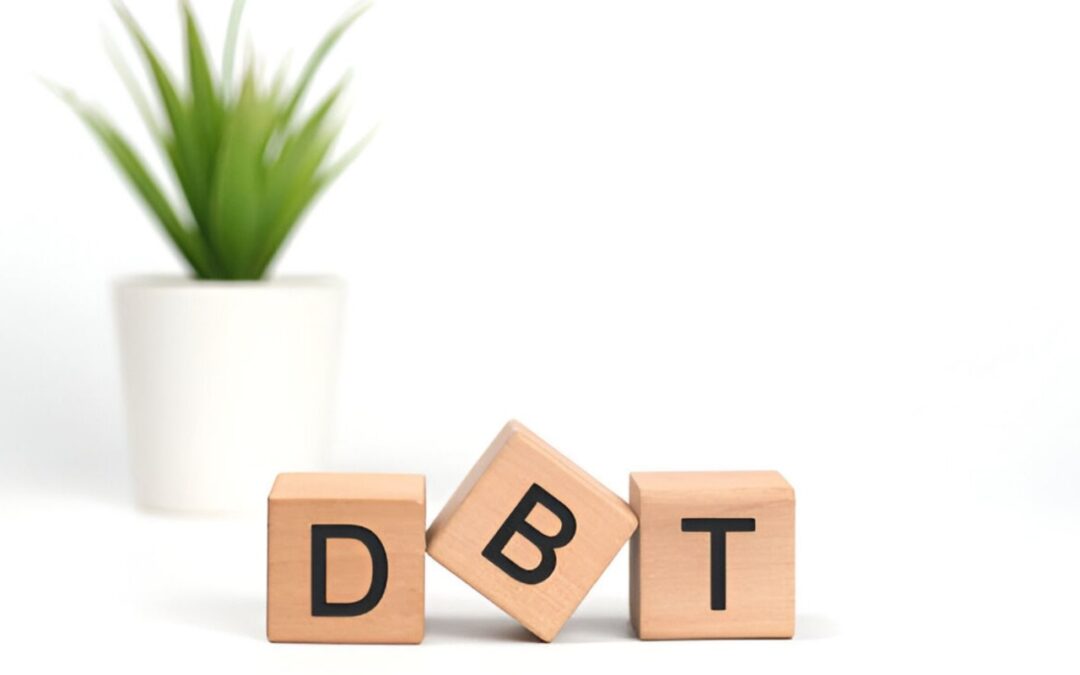Since starting my counseling internship I’ve been curious at the various types of therapy that begin to speak to you and line up with your style of therapeutic practice. For me I have begun to enjoy Dialectical Behavior Therapy (DBT). DBT is a specialized form of cognitive-behavioral therapy (CBT) that was developed by Dr. Marsha Linehan in the 1980s. Apparently it was originally created to treat individuals with borderline personality disorder (BPD), DBT now has been adapted for a variety of mental health conditions, including depression, anxiety, eating disorders, and substance abuse. DBT is particularly helpful for people who experience intense emotional dysregulation and struggle with self-destructive behaviors, such as self-harm and suicidal thoughts.
At the core of DBT is the concept of dialectics, which involves balancing opposites. In the case of therapy, it’s the balance between accepting the individual as they are while also working towards change (two items existing at the same time). This philosophy fosters an environment where patients can learn to accept themselves and their struggles, while at the same time developing the skills needed to improve their emotional regulation and interpersonal skills.
DBT is based on a few main principles, which differentiate it from other forms of therapy. These include:
- Dialectical Philosophy: The central idea in DBT is the balance between acceptance and change (2 items). Clients are encouraged to accept their feelings, thoughts, and behaviors as valid, while also working to change those patterns that are harmful or unproductive. The goal is not to eliminate emotions but to manage them in a healthier way.
- Mindfulness: The ability to stay present in the moment, is a key component of DBT. It involves noticing one’s thoughts, feelings, and bodily sensations with no judgment in Mindfulness aids individuals to become more aware of their emotional experiences and to start to gain control over them, instead of simply reacting.
- A change in behavior: this practice highlights changing unhealthy behaviors and thinking patterns that contribute to distress. This includes teaching coping strategies to manage intense emotions and addressing patterns of maladaptive behaviors, such as impulsivity, self-harm, or destructive relationships.
- Validation: One aspect of DBT is its emphasis on validating. In this context, validation refers to the therapist’s acknowledgment of the client’s feelings, thoughts, and behaviors as This validation fosters true safety in the therapeutic relationship, allowing clients to be deeply heard and supported while also encouraging movement towards change.
In terms of structure, DBT is delivered in not only, but typically individual therapy or in some sort of group skills training. The format helps individuals learn and apply skills in real-life situations.
- Individual Therapy: In individual therapy sessions, clients work one-on-one with a trained DBT therapist to address issues related to emotions, behaviors, and life circumstances. Therapy focuses on building trust, increasing emotional awareness, and addressing any type of self-destructive behaviors. Clients are encouraged to integrate DBT skills in their daily life.
- Group Skills Training: Group sessions can be aimed at teaching clients the main principles of DBT in a structured The group work provides a supportive environment where clients can learn from one another and practice new skills in a nonjudgmental space. Skills training usually incorporates Mindfulness, Distress Tolerance, Emotional Regulation, and Interpersonal Effectiveness.
Building upon this, there is an emphasis on skill-building. The therapy teaches a variety of practical tools to help clients manage their emotions and navigate interpersonal relationships. The four primary modules of DBT skills training are:
- Mindfulness Skills: Mindfulness teaches individuals how to stay present and aware of thoughts, emotions, and bodily sensations without judgment of these It reduces impulsivity and increases emotional regulation. Key parts include observing without reacting, describing detailed experiences, and a full participation in activities.
- Distress Tolerance Skills: Distress tolerance involves learning how to cope with a crisis and with difficult situations without resorting to self-harm or substance abuse. This module teaches skills for tolerating painful emotions, such as distraction techniques, self-soothing, and radical acceptance (accepting reality as it is, even if it’s difficult).
- Emotional Regulation Skills: Emotional regulation helps individuals manage overwhelming emotions and reduce emotional Skills in this area include labeling emotions, increasing positive emotional experiences, and a reduction of emotional reactions through healthy coping strategies.
- Interpersonal Skills: Interpersonal effectiveness focuses on improving communication and relationship This module teaches clients how to demonstrate their needs, make boundaries, and maintain healthy relationships, while also managing conflict and avoiding unnecessary drama.
Effectiveness of DBT
So research has clearly shown DBT to be highly effective for a wide range of mental health conditions! DBT has been shown to reduce symptoms of depression, anxiety, PTSD, and eating disorders. Its most robust evidence comes from studies involving individuals with BPD, where it has been found to significantly reduce self-harm, suicide attempts, and hospitalizations, while also improving emotional stability and interpersonal relationships.
DBT’s focus on skill-building is a main reason for its success. By providing clients with tools and strategies to navigate difficult emotions and situations, DBT aids individuals to gain greater control over their lives. The therapy’s emphasis on validation and acceptance also helps reduce shame and self-criticism, which can be major barriers to recovery.
DBT is truly a transformative therapeutic approach. It equips individuals with tools to manage their emotions, behaviors, and relationships in healthier ways. Its unique combination of acceptance and change, along with its structured approach, makes it an effective treatment for individuals struggling with controlling their emotions and with self-destructive behaviors. Whether for personality disorders, depression, anxiety, or other conditions, DBT offers a compassionate approach to mental health that emphasizes skill development, emotional regulation, and interpersonal skill development. Through DBT, individuals can learn to live more balanced, fulfilling lives, despite the challenges they may face.

